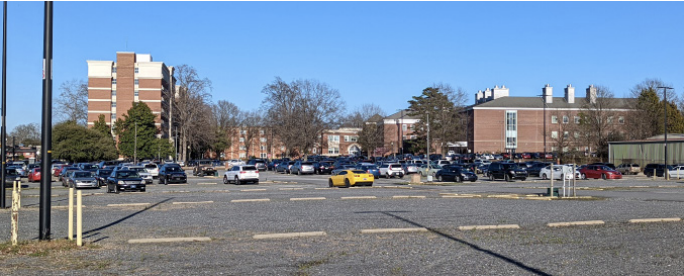Parking enforcement on side streets around campus will increase due to an increase in complaints from residents and business owners about cars blocking driveways, garbage pickup, fire hydrants, intersections, crosswalks, handicap access points and road signage.
The streets impacted include but are not limited to Park Avenue Extension, Ebenezer Avenue Extension, Stewart Avenue, Park Avenue, Ebenezer Avenue, Aiken Avenue and Union Avenue, according to an email sent on Wednesday by Winthrop’s Interim Chief of Police Charles Yearta.
Yearta said law enforcement and property owners are allowed to tow illegally parked cars that “block access to their property or are safety issues to general traffic.”
“The City of Rock Hill and Winthrop University are community partners on many fronts and we of course want to remain [a] good stewardess to our fellow citizens,” he said in the email.
In an interview, Yearta said the problem of illegal parking by Winthrop students, faculty and staff is not new; however, it has gotten worse this academic year.
Previously, Rock Hill police would respond to illegally parked cars off campus, then call Winthrop police if the car was identified as belonging to a Winthrop student, faculty or staff member. Due to the rising number of cars illegally parked, Winthrop police are no longer able to meet Rock Hill for every car.
“[Rock Hill police] are going to up their enforcement, and they have asked us to do the same. Now in the end, we don’t want anybody towed, we don’t want anybody ticketed,” Yearta said. “These are public streets, and you’re allowed to park there, but you got to know where you can park.”
Yearta said the majority of people parking illegally on these side streets are students, but some faculty and staff members have done it as well.
To Yearta, it is odd that so many students who have parking passes chose to park on the side streets, sometimes illegally, rather than parking on campus.
“We’re dealing with students … who either just didn’t buy a parking pass for whatever reason — and that’s you all’s right — or individuals who bought a parking pass and could park somewhere, but the parking lot that they found an open space in maybe was across the way, and it’s closer for them just to park on the side street next to an academic building,” he said.
Yearta said he has no problem with students parking on side streets for easier access or for not wanting to buy a parking pass, but the issue comes when students park illegally.
According to James Grigg, associate vice president of facilities management, parking is a consideration in the campus master plan, the plan for the future of campus development. However, it has to be weighed against other options.
“The master plan is looking at parking, but it is one component of the larger campus footprint (buildings, green space, roads, pedestrian routes etc). Since we are a fixed footprint, if you increase one area you reduce another,” he said in an email.




